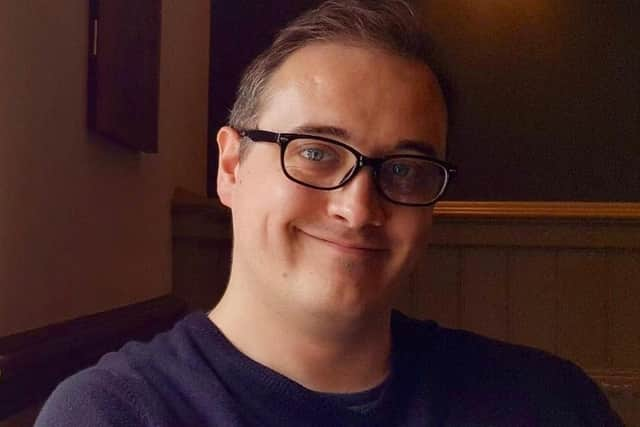We don’t need a solution to homelessness, we need a resolution – Alastair Stewart


There’s more interest these days in what shops are on Princes Street than which people. Poundland’s received a predictable level of snootiness when they opened a new store there. “Snobs” was the general reproach, but aren’t we all guilty of being blind to the human suffering that maligns the heart of the city?
According to Scottish Government 36,465 homeless applications were made by people between 2018-19 to local authorities. 29,894 households were assessed as homeless. 2876 applicants experienced rough sleeping at least once. 1744 of those assessed as homeless (or threatened with homelessness) were determined as repeat homeless.
Advertisement
Hide AdAdvertisement
Hide AdThe figures, in this day and age, are distressing. According to the Scottish Government, “Scotland has among the strongest rights in Europe for people facing homelessness.” That may be so – but the fact that there is not a mechanism for permanently resolving people sleeping rough shows a gulf between the reality and the ambition.


The Housing (Scotland) Act 2001 amended the 1987 Act and required Scottish councils to provide “a minimum of temporary accommodation, advice and assistance to all applicants assessed as homeless”. The same figures also revealed that on 3535 occasions, people were denied a home, leaving them little choice but to sleep on the streets.
Filtered into this incredibly unfortunate set of circumstances is society’s prejudices that someone on the street must have “somehow done something to get there”. It’s an ugly thing to hear, but we’ve all heard someone mutter, at some stage, the remark.
It’s a callous view that needs to be exposed, discussed and dealt with. People are prone to rash judgements and the Christmas season brings out the very best as well the worst, but usually the indifferent.
Advertisement
Hide AdAdvertisement
Hide AdThe Dickensian consequence of this is the macabre truth that there is no way to measure the number of homeless related-deaths in Scotland. A method to estimate the number of homeless deaths in England and Wales has been developed by the Office for National Statistics (ONS), but it has yet to be adopted in Scotland. As a person’s homeless status isn’t recorded on their death certificate, it’s not possible to identify instances where a deceased person was homeless.
It would seem, particularly at this time of year, that there is a serious blind spot for the suffering of those around us. There’s a gulf between “the point” of handing over change versus the duties and responsibilities of government. Citizens might have a right to temporary accommodation, but it doesn’t change reality. Failures in the system will surely mean failures in figures to capture the actual number of people who are sleeping rough. In 2020, we must warn against allowing, once again, in another year, the idea of a solution to pass as the actual final resolution to a problem. As with all things, there’s the risk of a policy and moral black hole. It sucks in the theory and the reality, and charities at this time of year that work to resolve this crisis deserve our highest respect. In turn, we owe them an open mind on how best to resolve this human crisis.
Alastair Stewart is a freelance writer and public affairs consultant. Read more at www.agjstewart.com and on Twitter @agjstewart